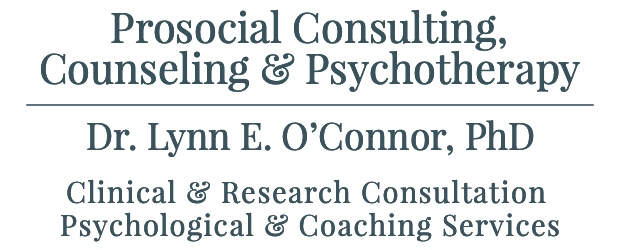How to Stop Fighting With Your Partner
Fighting between you and someone you want to get along with is miserable, sometimes devastating and can negatively affect all areas of your life. The fight you had with your partner last night left you drained, depressed, and barely able to function this morning. You feel “dys-regulated”—meaning your emotional state is not peaceful, stable, and cheerful. Your mind is drifting into the fight every few moments, and while you may not be entirely aware of it, you’re believing (complying) with the negative things your partner said or at least implied about you during the fight. Given that your mind is so busy obsessing over the details of words that flew back and forth, your energy level is much lower than what it’s supposed to be. The problem is the negative thoughts that invade your mind until some kind of peace is declared and there is an end to the argument.
On the one hand the negative after-effects of a fight with a partner or loved one are a function of your mind and, therefore, can come under your conscious control. So one solution to fighting is to develop your daily mindfulness–meditation practice in which you learn to distance yourself from negative thoughts, the kinds that run you down after a fight with your partner. With mindfulness training you see those thoughts as mere thoughts, not as solid statements representing “the truth.” Instead they become like clouds in the sky—here one moment, gone the next. They may float above you for a while, but you don’t dwell on them or take them seriously. So gaining control of your mind through meditation practice is one way to cope with a fight, but it s a one-person endeavor and fighting takes two or more people mixing it up.
Getting into the dynamics of fighting with your partner is another approach, and one that has the potential to change your whole relationship for the better; it’s a two-person problem and a two-person solution. Fighting that escalates is almost always the result of the cycle of guilt and anger (or even rage as some psychologists call it, although that might be hyper-dramatic). Lets look at an example; here’s what happens. You said you’d do something, and you forgot to do it. Your partner fails to calmly indicate that she or he will help out, acknowledging that you were so busy yesterday it’s understandable why it slipped your mind. Instead, your partner turns on you with accusations that you are always forgetting things, breaking promises, or not pulling your weight and may even subtly indicate that you are a lazy, parasitical character who expects everything to be handed to you on a gold platter. You take in the assassination of your character, and although you don’t want to believe it, you fear—under the level of conscious awareness—that he or she may be right and that you deserve the blame being heaped upon you.
Your defenses go up like a slab of hard marble, and in order to stop that horrible anxious feeling we call guilt—a fear that you’ve hurt someone (in this case your partner)—you turn it around. You “externalize” (to use the word psychologists use), and you argue that the situation was in fact your partner’s fault: She left you no time to get the paperwork together, or he is always shoving tedious tasks on you, instead of taking responsibility himself. You now get into character assassination yourself, letting your partner know that this is typical, that he or she is thoughtless, unkind, and a fundamentally selfish person. So the blame is thrown back, and your partner, like you, listens, half believes every word you say, can’t stand feeling so much guilt, and turns it around once more, externalizing the source of the problem, i.e., making it you again. And so it goes, back and forth, with no chance of resolution.
The problem here is our tendency to feel guilty when accused of anything, and in response, to blame others, particularly people we love, for things that go wrong, even if unconsciously we’re blaming ourselves. In fact, the more we blame ourselves, the more guilty we feel, and the greater is our need to externalize the problem by blaming our partner. The blame-guilt-blame-guilt cycle is what happens when you have a fight with your partner or roommate, or even a work colleague. You can see this without any deep analysis of your childhood experiences, although it must be said that when a partner blames you in a tone reminiscent of the one your mother took when reprimanding you, you’re likely to get even more upset, feel more guilt, and then turn it around and blame your partner with an even greater sense of urgency and anger. So, it’s not that childhood experiences are irrelevant entirely, but you can recognise this pattern without spending a moment thinking about the past.

The good thing here is that you can actually interrupt the cycle without the other’s knowledge or cooperation. As soon as a fight breaks out, stop for a moment, and allow yourself to recognize that you feel as guilty as if you’d committed a crime (most likely an imaginary one). Just recognize the guilt, feel it, but don’t take it seriously (mindfulness meditation can be helpful here). Then think of some way to avoid blaming your partner in return. An effort to refrain from externalizing and blaming the other will create an immediate break on the situation. The fight will end, your energy will be conserved, and perhaps you and your partner will be able to discuss the contentious issue in the future. Ordinarily, the focus of these fights is an exaggeration of daily life issues anyway. Write down—in simple language—the heart of the problem. It’s often about the allocation of chores or money. Or maybe you and your partner have been fighting, with a competitive edge, about how much space either of you takes up at social events. In the cool light of day, the distribution of household tasks may be considered and negotiated successfully; the same holds true for the allocation of money and for sharing attention in a social situation.
You might not be able to stop the very next fight with your partner, but you will be able to step away from it and examine it, noting the blame-guilt cycle. Once you can see this cycle operating in a real interaction, you’ll be able to change your fighting style or tactics. When you avoid blaming your partner, he or she will wind down quickly and refrain from blaming you once again. And you will see the cycle, I guarantee you. It’s predictable; it’s a law of a two-person system.
I challenge everyone to write in the Comments about a fight that didn’t amount to blame and guilt countered with more blame and guilt. There have to be exceptions, I’m looking for them.
